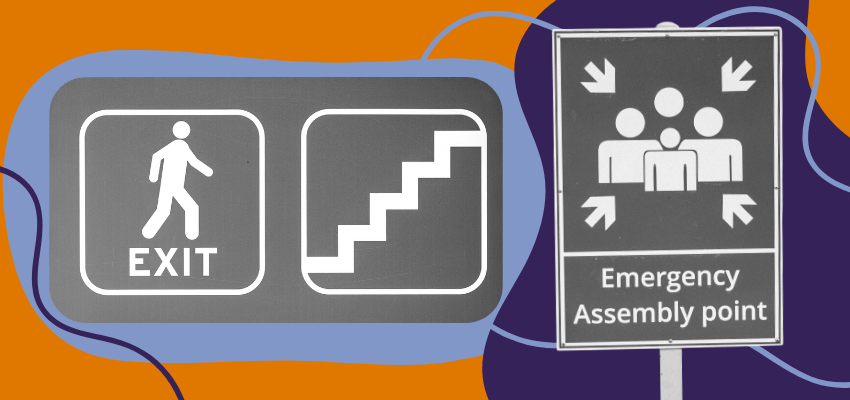Medicare Rules for Record Retention in Home Health & Hospice
August 25th, 2025
4 min read
By Abigail Karl

If you’ve ever had an ADR request for a chart from five years ago, you know the sinking feeling that follows. Does that file still exist? What if you can’t find it in time?
Losing key records or failing to produce them quickly doesn’t just frustrate your team. It can trigger deficiencies, repayment demands, and put your agency’s Medicare standing at risk. The last thing you need is an avoidable compliance issue because someone assumed it was “safe” to shred or delete old records.
*This article was written in consultation with Mariam Treystman.
At The Home Health Consultant, we’ve helped hundreds of agencies survive audits, pass surveys, and avoid payment denials. After 20+ years in the industry, we’re sharing everything we know to help you cover your bases.
In this article we’ll review:
- Medicare Clinical Record Retention Requirements for Home Health
- Medicare Clinical Record Retention Requirements for Hospice
- Medicare Administrative & Financial Record Retention Requirements for Home Health & Hospice
- HIPAA Record Retention Requirements for Home Health & Hospice
- Licensure & Accreditation Record Retention Requirements for Home Health & Hospice
- Home Health & Hospice Medicare Record Retention Cheat Sheet
- How to Build a Record Retention Process that Keeps You Covered
You’ll learn exactly what federal Medicare rules require (and what’s just “nice to have”), so you can stop guessing and start building a solid, compliant record retention plan.
How Long Should Home Health Agencies Keep Patient Clinical Records: Medicare Rules
For Medicare-certified home health agencies (HHAs), patient clinical records must be maintained for at least five years after the patient is discharged. This requirement is laid out in the Home Health Conditions of Participation (CoPs) at 42 CFR §484.110(c)(1).
If your agency closes, it’s not enough to just “box them up.” You must retain the records and inform your State agency where they’ll be stored.
In addition:
- Records must be protected from loss, unauthorized use, or destruction, and comply with HIPAA privacy/security rules (45 CFR 160 & 164).
- Patients (or their representatives) must be able to get copies free of charge either at the next visit or within four business days of the request (§484.110(e)).
How Long Should Hospice Agencies Keep Patient Clinical Records: Medicare Rules

For Medicare-certified hospice agencies, the retention period is six years after the patient’s death or discharge (42 CFR §418.104(d)).
If a hospice closes, it must retain all records and notify both the State agency and the CMS Regional Office about where those records will be kept.
Other hospice CoP requirements include:
- Safeguarding records from loss or unauthorized use
- Making records readily available to CMS, State survey agencies, or other authorized officials upon request
How Long Must Home Health & Hospice Agencies Keep Administrative & Financial Records for Cost Reports?
CMS requires that all patient and financial records supporting cost reports be kept for at least five years after the cost report is closed (CMS MLN guidance).
If you’re part of Medicare Advantage, the retention jumps to 10 years for cost report related documentation.
These records can be paper or electronic, as long as they are complete, accurate, and retrievable in a legally acceptable format.
What are the Federal HIPAA Documentation Retention Requirements for Home Health & Hospice?
The HIPAA Privacy Rule requires certain administrative documents to be kept for six years from the date of creation or last effective date, whichever is later (45 CFR §164.530(j)(2)). These kinds of records can include but are not limited to:
- Privacy policies
- Sanctions
- Complaints
This HIPAA retention rule applies in addition to any clinical record retention period under Medicare CoPs. So even if a patient’s chart can be destroyed after five or six years, certain related privacy documentation may need to be kept longer.
How Long Should Home Health or Hospice Licensure & Accreditation Documents be Kept?
While the Medicare CoPs don’t give a fixed number of years for licensure and accreditation documents, they do require that such documentation be available to surveyors at all times. However, these documents will never be requested for ADRs, because they are not included in billing records.
The only case in which these documents would be reviewed, would be during your first survey after enrollment (your first triennial/Medicare re-certification survey). If you haven’t admitted enough patients to undergo a proper survey, a surveyor may ask for your accreditation patient charts.
The safest practice? Match or exceed the longest applicable federal retention period.
Can Agencies Store Required Records Electronically?
Yes, agencies can store long-term required records electronically. If the answer was no, you’d need a warehouse instead of an office space for all that paper! Both home health and hospice CoPs allow for electronic records, as long as they are:
- Safeguarded against loss, unauthorized access, and alteration
- Readily retrievable upon request by CMS, State agencies, patients, or other authorized parties
- Legally acceptable reproductions if replacing paper records (CMS MLN guidance)
What Penalties Can Home Health or Hospice Agencies Face If Records are Missing or Destroyed Too Soon?
If a surveyor requests a record that’s missing, incomplete, or destroyed too early, your agency could face:
- Standard or condition-level deficiencies under the CoPs
- Payment denials or recoupments if documentation can’t support billed services
- Increased scrutiny in future surveys or audits
You don't want any of the above. That's why it's so important to know these requirements and adjust your internal processes around them.
Home Health & Hospice Agency Medicare Record Retention Cheat Sheet

We know that’s a lot to take in, so here’s a quick recap of everything we’ve covered:
- Home Health Patient Charts: 5 years after discharge
- Hospice Patient Charts: 6 years after death or discharge
- HIPAA Documentation: 6 years
- Medicare Cost Report Support: 5 years after closure (10 for Medicare Advantage)
Medicare CoPs state you can keep these records electronically, so make sure you have processes in place to scan and safely store records as the years go by.
How Can Your Agency Build a Record Retention Plan that Covers Medicare Rules?
A simple way to start:
- List every record type your agency creates or receives.
- Identify all applicable federal retention rules for each type. (If you’ve made it this far into the article, you can check this one off your list!)
- *Check your State’s retention requirements as well. For example, in California, clinical records, including patient medical records, must be retained for a minimum of 7 years following patient discharge.
- Set your internal policy to the longest applicable retention period.
- Assign responsibility for storing, safeguarding, and retrieving each record type.
- Document your retention schedule and destruction procedures.
Records aren’t just paperwork. They’re proof your agency delivered care as billed and stayed compliant with Medicare requirements. Commit to creating or updating your retention schedule so nothing gets destroyed too early or lost when it’s needed most.
If you’re looking for more ways to tighten your documentation practices, explore our guides on Medicare Signature Requirements so your agency is always survey-ready and reimbursements are protected.
*Disclaimer: The content provided in this article is not intended to be, nor should it be construed as, legal, financial, or professional advice. No consultant-client relationship is established by engaging with this content. You should seek the advice of a qualified attorney, financial advisor, or other professional regarding any legal or business matters. The consultant assumes no liability for any actions taken based on the information provided.
Topics:



























